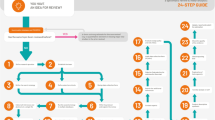Abstract
Background: Causal reasoning as a way to make a diagnosis seems convincing. Modern medicine depends on the search for causes of disease and it seems fair to assert that such knowledge is employed in diagnosis. Causal reasoning as it has been presented neglects to some extent the conception of multifactorial disease causes.
Goal: The purpose of this paper is to analyze aspects of causation relevant for discussing causal reasoning in a diagnostic context.
Procedures: The analysis will discuss different conceptions of causal reasoning in medical diagnosis, discriminating primarily between narrow causal diagnosis and more thorough causal explanation. The theory of causes as non-redundant factors in effective causal complexes is used as an analytical background. Causal explanations are performed according to different causal models. Such models of diagnosis are assumptions concerning structure and mechanisms, which cannot be directly or immediately observed. Conceptions and results of causal search strategies differ, according to the focus of the searcher. Causal reasoning is also seen in diagnosis in a more extensive meaning: the pin-pointing of factors responsible for the condition of the patient at any time during the course of disease.
Conclusion: Causal reasoning and diagnosis go well in hand, especially if both concepts are widened. The theory of causes as non-redundant components in effective causal complexes, modulated by what is referred to as the stop problem and causal fields, is valuable for explaining the many aspects of causal reasoning in medical diagnosis.
Similar content being viewed by others
References
“Causal reasoning” has not been rigidly defined. Causal reasoning is one of various kinds of diagnostic reasoning. Not only medical diagnosis, but also procedures in surveillance systems, industrial processing, aircraft, etc. where malfunctions are detected and corrected are “diagnostic.” Causal reasoning refers to searches for what caused a system to malfunction in an existing malfunction situation. The causal behavior of the system and the reasoning employed must be expressed verbally for the application of an adequate theory of causality.
Mackie JL. Causes and conditions.Am Philos Quar 1965;2:245–64.
Mackie JL.The Cement of the Universe — a Study of Causation. Oxford: Clarendon Press, 1974.
Wulff HR, Andur Pedersen S, Rosenberg R.Philosophy of Medicine: An Introduction. Oxford: Blackwell Scientific, 1986.
Rizzi D, Andur Pedersen S. Causality in medicine: Towards a theory and terminology.Theor Med 1992;13:233–54.
Ibid.
Ibid.
Mackie 1965, 1974.
Wulff et al.
Rizzi, Andur Pedersen.
This case is based on the meningitis case in Wulff et al. (reference 4, p. 66). It has been slightly modified/extended for the purpose of the discussion here, i.e. the distinction between two types of causal search.
Wulff et al. and Rizzi, Andur Pedersen.
The answer here would be the diagnosis: pneumococcal meningitis.
Rizzi, Andur Pedersen.
Hemophilia can be a non-redundant factor, when looking at cases of HIV+. If the scope is changed to causes of HIV infection in hemophilia patients, hemophilia is no longer a non-redundant factor. Hemophilia appears as a common background factor or restraint for the causal explanation. It has become part of the causal field.
Andur Pedersen S, Rasmussen J. Causal and diagnostic reasoning in medicine and engineering. In: Andersen HB, Andur Pedersen S, Cacciabue C, Reason J (eds).Cognitive Processes and Resources. Proceedings of the 2nd MOHAWC Workshop, Manchester, November 1990. Risø: National Laboratory Press, 1991.
Ibid.
Kassirer JP. Diagnostic reasoning.Ann Int Med 1989;110:893–900.
Wulff HR.Rational Diagnosis and Treatment 2nd ed. Oxford: Blackwell Scientific, 1981.
Kassirer.
Andur Pedersen, Rasmussen.
Examples of diagnostic models are Bayesian models, algorithms, and hypothetical-deductive diagnosis.
Types of events, as opposed to tokens of events, see Rizzi, Andur Pedersen.
Losee J.Philosophy of Science and Historical Enquiry. Oxford: Clarendon Press, 1987.
Author information
Authors and Affiliations
Additional information
This study was made possible through funding by the EC ESPRIT II, Basic Research Action Program, Project no. 3105,MOHAWC.
Rights and permissions
About this article
Cite this article
Rizzi, D.A. Causal reasoning and the diagnostic process. Theoretical Medicine 15, 315–333 (1994). https://doi.org/10.1007/BF01313345
Issue Date:
DOI: https://doi.org/10.1007/BF01313345




